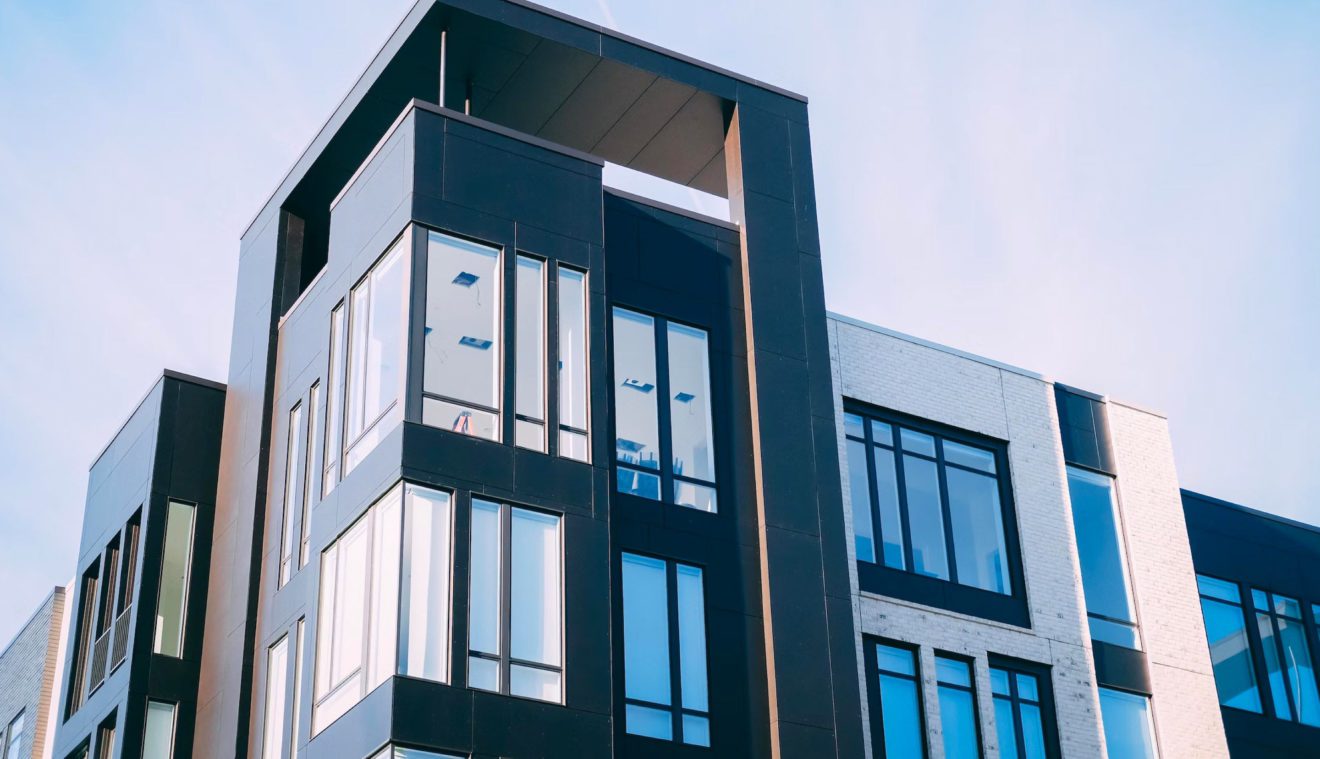Landlord-tenant relationships thrive on balance, transparency, and timely communication. When any of these pillars falter, conflicts arise, rental income suffers, and property values can decline. Many landlords, especially those managing multiple units or properties, often find it difficult to consistently meet tenant expectations while also ensuring regulatory compliance and property upkeep. That’s where property management services enter the equation—not just as facilitators but as vital connectors between owners and tenants. Their role transcends basic management; they enhance the quality and reliability of rental interactions.

Centralizing Communication to Avoid Misunderstandings
Miscommunication between landlords and tenants is one of the leading causes of disputes. From maintenance requests to rent payments and lease renewals, unclear or delayed communication creates stress on both ends. Property management companies act as an effective communication hub. Tenants know exactly whom to contact for repairs, complaints, or clarification, while landlords receive streamlined updates and progress reports without being drawn into daily operations.
Centralized communication helps enforce consistency. Every request is documented, tracked, and addressed according to a defined process. This removes guesswork, avoids delays, and keeps both parties accountable. By eliminating ad-hoc texting, inconsistent emails, or forgotten voicemails, managers introduce professionalism and predictability into what is often a chaotic dynamic.
Professional Conflict Resolution Reduces Tension
Not every landlord is equipped to deal with confrontations. When tenants delay payments, damage property, or breach lease terms, things can quickly escalate. A property management company provides a neutral, professional layer between landlords and tenants. This buffer allows sensitive situations to be handled calmly, objectively, and according to lease agreements and local laws.
This also protects landlords from potential legal liabilities. Managers understand local tenant laws, eviction procedures, and fair housing rules. They de-escalate issues, offer fair resolutions, and, when necessary, handle legal procedures with proper documentation and precision—allowing the relationship to remain civil even when difficult decisions must be made.
Streamlined Rent Collection and Payment Processing
Late or missing rent disrupts cash flow and erodes trust. Property managers implement robust systems for rent collection—typically using automated platforms that remind tenants before due dates and notify landlords of payments in real time. This automation not only reduces the friction around monthly collections but also builds consistency.
In cases of non-payment, the manager follows a defined protocol. Warning notices, payment plans, or legal steps are implemented without emotion, ensuring every tenant is treated equally. This predictability keeps rental income flowing, discourages habitual late payers, and reassures tenants that processes are fair and transparent.
Consistency in Lease Enforcement
One of the greatest inefficiencies in landlord-tenant relationships stems from inconsistent rule enforcement. If some tenants are allowed to bend lease rules while others are strictly penalized, resentment builds quickly. Property managers create standardized lease templates, ensure every clause is enforceable under current law, and apply rules equally to all tenants.
From noise violations to pet policies or subletting concerns, tenants feel more secure knowing that rules are clearly communicated and fairly applied. Landlords, in turn, gain peace of mind that lease obligations are upheld without favoritism or negligence.
Preventive Maintenance Keeps Properties Functional and Tenants Happy
Delayed or ignored maintenance requests are among the top complaints tenants have about landlords. Property management companies run preventive maintenance programs—regular inspections, seasonal servicing, and scheduled upgrades—that address issues before they become costly breakdowns.
This proactive approach improves the living experience for tenants. They feel valued when their needs are anticipated and resolved before inconvenience occurs. For landlords, well-maintained properties translate to higher retention, reduced emergency repair costs, and sustained asset value.
Tenant Screening Ensures Compatibility and Reliability
A strained landlord-tenant relationship often stems from a poor match made at the application stage. Property managers use proven screening methods—credit checks, employment verification, rental history, and background checks—to assess tenant reliability and financial responsibility.
More importantly, experienced managers can gauge behavioral red flags or inconsistencies in an applicant’s history that go beyond numbers. By placing tenants who are more likely to respect property rules and pay rent consistently, managers set the stage for smoother relationships and fewer interventions later.
Legal Compliance Shields Relationships from Risk
Tenant-landlord laws evolve frequently. Missing a regulatory update can result in fines, lawsuits, or irreparable tenant distrust. Property managers stay current with housing codes, rent control rules, eviction procedures, habitability standards, and fair housing guidelines.
This legal foresight benefits both sides. Tenants receive all disclosures, rights, and safety assurances required by law. Landlords avoid disputes that could escalate into formal complaints or litigation. The result is a relationship built on legal clarity and mutual respect.
Faster Turnaround During Vacancies
Vacant units lead to lost revenue and anxiety. Property managers handle tenant move-outs, inspections, cleaning, repairs, and marketing in a tightly choreographed timeline. They minimize vacancy periods, screen new tenants quickly, and ensure all move-in requirements are professionally handled.
Tenants benefit because they walk into a clean, functional unit with clear move-in instructions and contact information. Landlords benefit from reduced downtime and faster ROI. The seamless transition from one tenant to the next eliminates the bottlenecks and delays that typically strain owner-tenant relationships.
Data-Driven Insights Improve Relationships Over Time
Modern property managers collect data—on maintenance frequency, tenant feedback, payment patterns, and lease compliance. This insight helps refine operations, identify trends, and forecast potential issues before they surface.
For example, if data shows that tenants in a specific unit consistently report heating issues, preventive upgrades can be scheduled. If lease renewals are dropping in a certain building, feedback can be used to adjust pricing, amenities, or communication methods. These data-backed adjustments lead to stronger retention and more efficient interactions.
Tenant Retention Through Professional Experience
Tenant turnover is expensive and disruptive. When tenants leave due to dissatisfaction, it reflects poorly on management. Property managers focus on tenant retention through responsive communication, quality maintenance, and consistent engagement.
From move-in gifts to periodic satisfaction surveys or online rent portals, these small yet impactful touches demonstrate a commitment to tenant comfort. When tenants feel appreciated and heard, they stay longer, pay on time, and contribute to a more stable and cooperative environment.
Emergency Handling Enhances Trust
Late-night plumbing emergencies or power outages test the resilience of landlord-tenant relationships. Delayed responses create panic, while quick resolution builds trust. Property managers provide 24/7 emergency handling, dispatching vendors quickly and keeping tenants informed every step of the way.
Landlords no longer need to be on-call for emergencies, and tenants know help is always available. This reliability is one of the strongest factors in tenant satisfaction and long-term occupancy.
Neutrality Encourages Transparency
When conflicts arise, tenants may hesitate to approach a landlord directly out of fear of retaliation or rent hikes. Property managers offer a neutral intermediary that tenants can trust. They can raise concerns without personal risk, and the manager can escalate important issues to the landlord without emotional tension.
This structure fosters open dialogue, early issue identification, and collaborative resolution. Transparency leads to mutual accountability, where both sides feel seen and supported.
Cultural and Legal Sensitivity Promotes Inclusion
With diverse populations in many rental markets, cultural sensitivity and non-discriminatory practices are essential. Property managers are trained in inclusive communication and legal standards that prevent bias in leasing, communication, or service delivery.
Tenants from all backgrounds feel welcome, respected, and protected. Landlords benefit by attracting a wider pool of reliable renters and avoiding costly discrimination claims or tenant dissatisfaction based on cultural disconnects.
Scalable Systems for Portfolio Growth
As landlords expand from one property to several, self-management becomes unsustainable. Property management companies scale systems—accounting, maintenance, marketing, compliance—across multiple locations seamlessly.
Tenants across properties receive a consistent experience. Landlords receive unified reporting and centralized management, regardless of portfolio size. This scalability maintains quality while avoiding the inefficiencies that come from juggling multiple tenants across different addresses with varying standards.
Technology Integration Enhances the Experience
Modern management firms utilize tenant portals, digital lease agreements, automated maintenance requests, and app-based communication. These platforms simplify and accelerate interactions. Tenants enjoy self-service options while still having access to live assistance when needed.
Landlords benefit from real-time updates, instant notifications, and digital records that reduce errors and disputes. Technology empowers both parties without replacing the human connection required for meaningful landlord-tenant relations.
Transparent Financial Reporting Builds Confidence
Accurate financial records are essential for property owners. Managers provide itemized monthly reports, year-end statements, and clear documentation of income, expenses, and reserve fund usage. Every payment, invoice, or deduction is tracked and available for review.
Tenants, too, benefit from financial transparency—receipts for rent, notices of upcoming changes, and security deposit documentation. This shared clarity minimizes confusion and reinforces trust on both ends.
Vendor Relationships Ensure Quality and Speed
Property managers cultivate long-term relationships with licensed vendors—plumbers, electricians, cleaners, and contractors. This ensures faster service, competitive rates, and verified work quality.
Tenants are less likely to experience recurring issues or delays. Landlords avoid overcharging, uninsured work, or liability exposure. The smooth vendor coordination reduces friction and strengthens the reliability of the landlord-tenant connection.
Custom Lease Structuring Reflects Specific Needs
Not every tenant or property fits into a cookie-cutter lease agreement. Property managers customize leases to address unique circumstances—shared housing, furnished units, utility splits, or pet accommodations.
Custom leases clarify expectations from the outset. Tenants understand their responsibilities and rights, while landlords feel legally covered. This clarity prevents misunderstandings and ensures the lease supports the specific dynamics of each unit.
Market Expertise Prevents Pricing Conflicts
Rent that is too high drives away good tenants. Rent that is too low erodes returns. Property managers use local data, market trends, and competitive analysis to price units accurately. They adjust rents in sync with seasonal changes, demand shifts, or property upgrades.
When tenants feel pricing is fair, they’re more likely to renew. Landlords maintain profitable margins while avoiding vacancies. This pricing harmony helps preserve positive landlord-tenant rapport.
Human-Centered Approach Sustains Long-Term Harmony
Beyond systems, compliance, or technology, successful property managers focus on relationships. They build rapport with tenants through listening, consistency, and empathy. They represent the landlord with professionalism and respect, acting as stewards of both the property and the human experience within it.
This human-centered approach transforms rental management into a service that benefits all parties. It elevates landlord-tenant interactions from transactional to cooperative—where both feel supported, respected, and secure.
Why choose InTrust.?
At InTrust., we believe efficient landlord-tenant relationships are built on trust, communication, and integrity. Our team combines operational precision with a people-first mindset. Whether you’re a landlord seeking peace of mind or a tenant looking for consistency and fairness, InTrust. creates an environment where everyone feels valued. We don’t just manage properties—we nurture positive, enduring relationships that protect your investment and enhance everyday living. With InTrust., you gain more than a manager. You gain a partner dedicated to clarity, care, and continuity.

Questions About Commercial Real Estate?
See the services we offer to learn how we can help you achieve more with your asset.
Learn More

